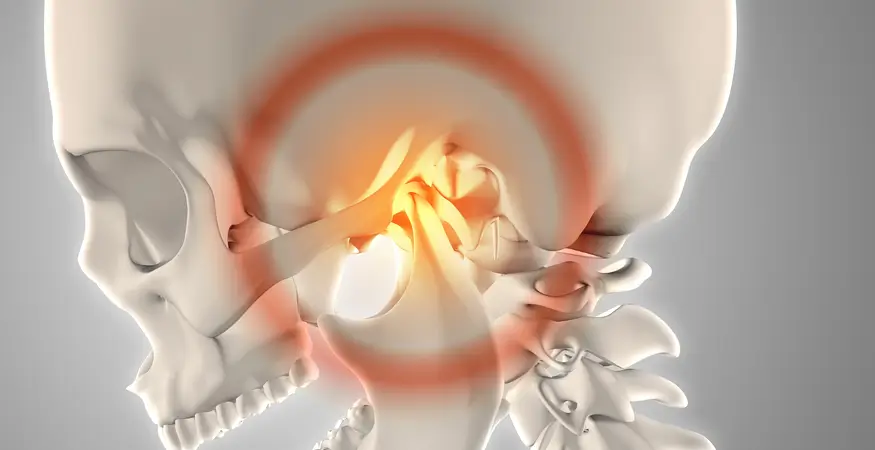
How to Avoid Tooth Sensitivity: Causes, Prevention, and Relief Tips
Tooth sensitivity can turn everyday moments into painful ones. A sip of cold water, a hot drink, or even brushing your teeth may cause sudden
Published on
TMJ disorders can severely affect daily activities such as chewing, speaking, sleeping, and even maintaining proper posture. When jaw movement becomes restricted or pain becomes chronic, it impacts a person’s quality of life. At TMJ India, we specialise in diagnosing and treating complex TMJ conditions using evidence-based, advanced medical techniques. In many moderate to severe cases,TMJ joint surgery becomes the most reliable long-term treatment for restoring normal jaw function.
This in-depth guide covers what TMJ surgery involves, when it is necessary, the types of surgical procedures available, the benefits of TMJ surgery, expected recovery from TMJ surgery, and effective alternatives to TMJ surgery.

In more complex cases, TMJ dysfunction surgery requires an open approach. Surgeons can directly access the joint, repair the disc, correct deformities, or remove bone abnormalities. This option is typically recommended for advanced structural problems

Many patients experience life-changing improvements after surgical treatment. Key benefits of TMJ surgery include:
Reduced pain, improved mobility, and better sleep significantly enhance overall well-being.
At TMJ India, surgical procedures are performed using advanced imaging guidance, precise microsurgical tools, and modern techniques to ensure maximum safety and effectiveness.
Every patient’s recovery timeline is slightly different, depending on the type of TMJ operation performed.
TMJ India provides personalised physiotherapy plans including mobility exercises, stretching, posture correction, muscle strengthening, and guided TMJ exercises designed specifically to improve joint movement. These steps are critical for preventing stiffness, reducing pain, and restoring full jaw function after surgery.
Depending on the specific surgery, complete recovery may take between 4 to 12 weeks. Joint replacement surgeries may take longer but provide extremely stable and long-lasting results.
Understanding the full recovery from TMJ surgery helps patients plan appropriately and stay committed to post-operative care.
Before recommending surgical intervention, TMJ India ensures all conservative alternatives to TMJ surgery are explored thoroughly. These may include:
Custom-made devices help correct bite alignment, reduce clenching, and minimise stress on the joint.
Anti-inflammatory drugs, analgesics, muscle relaxants, or supplements may be prescribed depending on symptoms.
Targeted TMJ exercises, ultrasound therapy, dry needling, and manual therapy help improve muscle balance and enhance overall joint mobility.
Stress reduction, posture correction, sleep changes, and diet adjustments often greatly reduce symptoms.
Helpful for patients with muscle-related TMJ pain or referred pain in the jaw and neck.
Only when these approaches fail does TMJ dysfunction surgery become the most suitable treatment.
TMJ disorders can be painful, frustrating, and disruptive, but with the right treatment approach, long-term relief is absolutely possible. Whether your condition requires conservative care or
advanced TMJ joint surgery, TMJ India provides expert diagnosis, modern treatment options, and personalised support at every stage of the healing process.
For individuals seeking specialised care for chronic jaw pain, locking, or movement difficulties, The Right Bite Sleep and TMJ Pain Care offers a trusted and holistic approach to achieving lasting relief and restoring natural jaw function.
Contact us
Our other blogs

How to Avoid Tooth Sensitivity: Causes, Prevention, and Relief Tips
Tooth sensitivity can turn everyday moments into painful ones. A sip of cold water, a hot drink, or even brushing your teeth may cause sudden

Teeth Whitening vs Teeth Cleaning: Purpose, Process, and Benefits Explained
A healthy smile depends on more than daily brushing. Professional dental care plays a key role in keeping teeth clean, gums healthy, and smiles confidently.

Top Symptoms for Root Canal Treatment and Why It’s Sometimes Necessary
Tooth pain is not always easy to understand. Some pain goes away on its own. Other pain keeps coming back or getting worse over time.
WhatsApp us